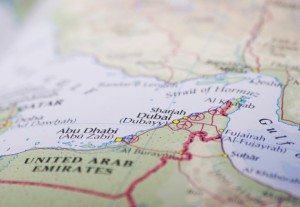
The UAE
Dubai and Abu Dhabi are the two economic powerhouses and political centres of the United Arab Emirates (UAE), a federation of separate states bordering Oman to the south and Saudi Arabia to the west. There are seven states in all that constitute the UAE and the current political arrangements uniting the emirates were officially instituted in the early 1970s. Abu Dhabi is the capital of the federation, while Dubai is its largest and most widely recognised city. Both lie along the coast of the Persian Gulf and each has seen seismic changes in the way they function and present themselves to the world during the past century and particularly over the course of the last few decades.
United histories
The histories of Dubai and Abu Dhabi have been entwined in various ways for centuries, as you might expect given that they are just over 100 kilometres apart, with the former lying farther north along the coast. They are now, of course, joined by an official federation but at various times even in recent history, the two cities have been very much at odds, to the point of hostility. Written records of life along the Persian Gulf beyond 200 years are extremely scarce but both cities and particularly Dubai were noted as being significant port towns while under the control of competing empires throughout much of the last millennium. Part of this relative prominence was down to a thriving pearl industry in Abu Dhabi and a proximity to major centres of economic activity like Persia.
Oil and the emirates
Huge and impressively successful efforts have been made in recent years to diversify the economy of the UAE but there’s no denying that the discovery of oil in the late 1960s had a massive impact on what would be possible in what had previously been a long overlooked region of the world. Finding abundant reserves of the most sought-after natural resource on the planet was always likely to leave a lasting impression and so its proved with the UAE. Monetary unions, political alliances, free trade zones and employment hotspots all came to be founded firmly on the basis of a thriving oil industry. As a result, the populations of both Dubai and Abu Dhabi exploded in the second half of the 20th century from a few hundred thousand each to roughly 2 million and 900,000 respectively.
Very modern cities
Exploitation of the region’s natural resources has made it much more wealthy than ever been before, which has had a major effect on the cultural make-up of the UAE as its inhabitants are increasingly foreign labourers, newly arrived from various parts of the world. The changes have also had an impact on the way the two major cities look, as mud huts give way to more modern structures and ever more tarmacked roads. 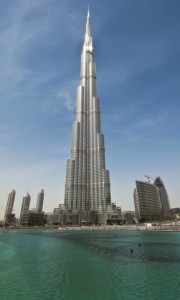 There are now very few places in the world that can claim to be even remotely as dynamic or as ground-breaking as Dubai and Abu Dhabi. In many ways they are redefining what it means to be a modern city, with superstructures, business centres and almost unimaginable tourist attractions springing-up almost on a weekly basis.
There are now very few places in the world that can claim to be even remotely as dynamic or as ground-breaking as Dubai and Abu Dhabi. In many ways they are redefining what it means to be a modern city, with superstructures, business centres and almost unimaginable tourist attractions springing-up almost on a weekly basis.
Economy and tourism
As we know, supplies of oil and other natural resources are inherently finite and far from hiding away from that fact, the UAE’s leading minds have been put to work on finding new ways for the region to thrive and grow as part of the global economy. 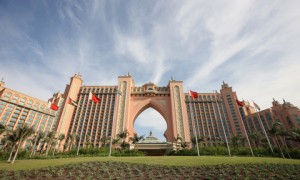 Property industries, telecoms and technology sectors and trading of all kinds are very important to the local economy but tourism has become arguably the most significant industry of them all in the UAE. Some of the most lavish hotels and entertainment complexes on earth can now be found in Dubai and foreign tourists continue to flood to the emirate to visit its increasingly awe-inspiring property developments and some of the largest shopping malls in the world.
Property industries, telecoms and technology sectors and trading of all kinds are very important to the local economy but tourism has become arguably the most significant industry of them all in the UAE. Some of the most lavish hotels and entertainment complexes on earth can now be found in Dubai and foreign tourists continue to flood to the emirate to visit its increasingly awe-inspiring property developments and some of the largest shopping malls in the world.
Office space to rent in Dubai and Abu Dhabi
Levels of speculative investment in office space development projects in the UAE during the 2000s were unprecedented anywhere in the Middle East and the federation’s capital and largest city bore the brunt of the fallout from the financial crisis of 2007. As a result though, the skylines along the Persian Gulf coast are absolutely spectacular and there are some excellent deals available for high-quality office space to rent. 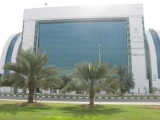
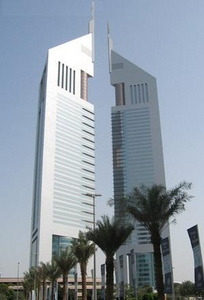 A concerted economic recovery effort is well under way and Dubai and Abu Dhabi is currently doing business with almost the entire world, across Asia, Europe and the Americas. Media organisations like Reuters, the BBC, Sky News and the Associated Press all have an office space presence in Dubai’s Media City, as do technology giants like Microsoft and IBM.
A concerted economic recovery effort is well under way and Dubai and Abu Dhabi is currently doing business with almost the entire world, across Asia, Europe and the Americas. Media organisations like Reuters, the BBC, Sky News and the Associated Press all have an office space presence in Dubai’s Media City, as do technology giants like Microsoft and IBM.
Transport
Like seemingly everything else that has been attempted in Dubai over the past decade or so, the city’s transport links are nothing if not spectacular. The third terminal at Dubai International Airport is not only among the busiest transport hubs in the region, it is also the largest building in the world in terms of its floorspace. This incredible structure though will apparently be dwarfed by what lies in store only a few miles away at what will become Al Maktoum International, soon-to-be the largest airport on earth, complete with five runways and capacity for 160 million passengers a year. 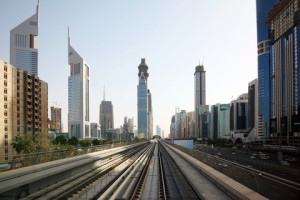 Other aspects of the UAE’s transport networks are also works in progress, like a variety of metro rail systems and schemes aimed at dramatically improving the quality of bus services. One initiative is set to see hundreds of air-conditioned bus shelters established, which it is hoped will encourage busy desert-dwellers to use public transport more often than they currently do.
Other aspects of the UAE’s transport networks are also works in progress, like a variety of metro rail systems and schemes aimed at dramatically improving the quality of bus services. One initiative is set to see hundreds of air-conditioned bus shelters established, which it is hoped will encourage busy desert-dwellers to use public transport more often than they currently do.
Culture and sport
The cultures of both Dubai and Abu Dhabi are rooted in their traditions as centres of Islamic teachings and practices. These traditions manifest themselves today in many of the oldest buildings in the Emirates and in the customs that predominate. However, there has been plenty of cultural cross-over during recent decades as communities with origins in different parts of the world have taken root in the UAE’s two main cities. Both are now cosmopolitan centres of international business, trade and political machinations and the style of the surroundings reflects a growing globalised viewpoint and an unparalleled commitment to novelty and endeavour. 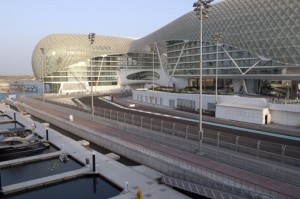 This apparent passion for leading the way in every sense possible might well be behind the Emirates’ plans to bring the Summer Olympic Games out to the desert in 2020 and why more and more world-class sporting venues are being built all along the coast. Some of the most prestigious golf tournaments, tennis championships and horse races in the world already form part of the Dubai sporting calendar, while cricket and football continue to grow in popularity among the local population. It is difficult to overstate the scale of what has been going on in the UAE in recent years. You might have to see it to believe it.
This apparent passion for leading the way in every sense possible might well be behind the Emirates’ plans to bring the Summer Olympic Games out to the desert in 2020 and why more and more world-class sporting venues are being built all along the coast. Some of the most prestigious golf tournaments, tennis championships and horse races in the world already form part of the Dubai sporting calendar, while cricket and football continue to grow in popularity among the local population. It is difficult to overstate the scale of what has been going on in the UAE in recent years. You might have to see it to believe it.